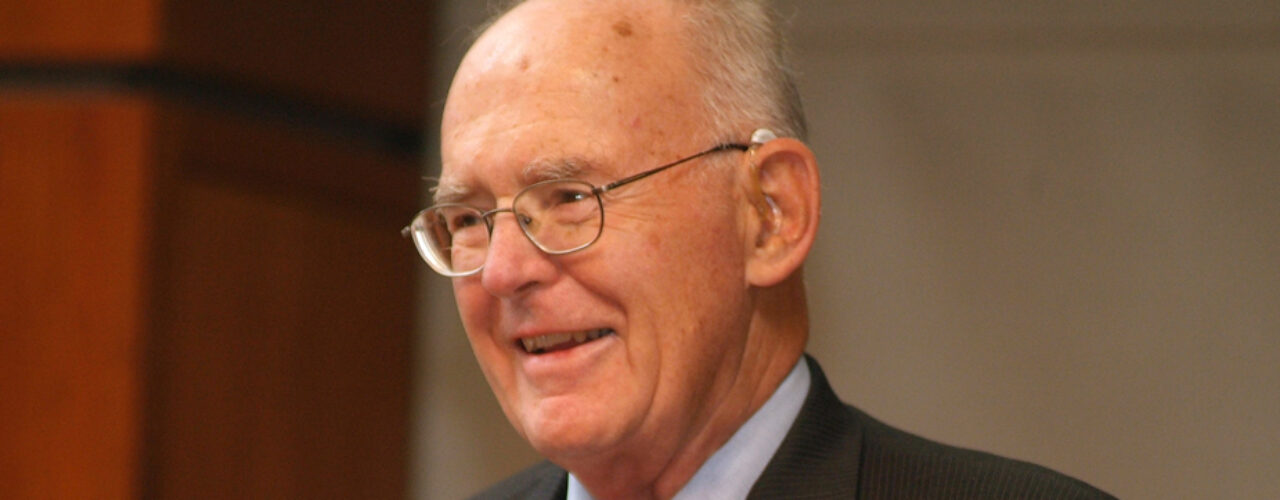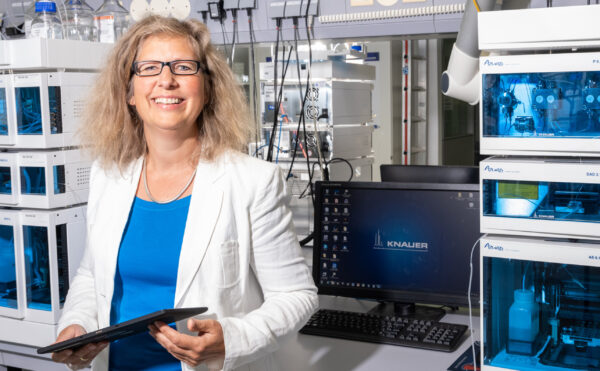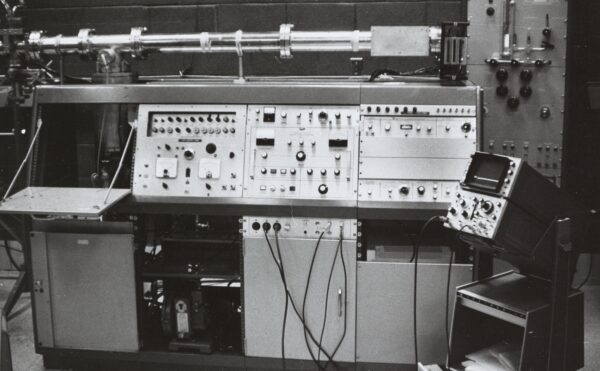
Science History Institute Remembers Board of Advisors Member Gordon Moore
The Intel cofounder passed away March 24, 2023, at the age of 94.
The Science History Institute mourns the loss of chemist Gordon E. Moore, the Intel Corporation cofounder who was a longtime member of our Board of Advisors. Called a “quiet revolutionary” by biographers, the computing technology pioneer passed away peacefully on March 24, 2023, at the age of 94.
In 1965 Moore predicted that the number of transistors that would fit on a computer chip would double every year, a concept that is known as Moore’s law. That observation—revised a decade later to roughly every two years—became a cornerstone principle of innovation and a driving force for the exponential pace of technological progress that is still accurate today.
After earning a PhD in physical chemistry at Caltech in 1954, Moore conducted postdoctoral research in the Applied Physics Laboratory at Johns Hopkins University in Maryland. He moved back to the West Coast in 1956 when he was offered a position by William Shockley, the coinventor of the transistor who had recently formed Shockley Semiconductor, the company that gave birth to California’s Silicon Valley.
Less than a year later, Moore and a group of other scientists and engineers left Shockley and formed Fairchild Semiconductor, a pioneer in the manufacturing of transistors and integrated circuits. Under Moore’s leadership, Fairchild made contributions to the development of the metal oxide semiconductor (MOS) field-effect transistor, the kind of transistor still used today as chip components.
In 1968 Moore and integrated circuit inventor Robert Noyce founded Intel Corporation, which would become the largest manufacturer of silicon microchips in the world. Moore began as Intel’s executive vice president and rose to become its CEO and chairman of the board.
Over the years he became an elder statesman for the semiconductor industry, founding organizations and making representations to government. In the late 1990s and 2000s, Moore and his wife, Betty, increasingly turned their attention to philanthropic pursuits, supporting scientific education and research and conservation of the environment through the Gordon and Betty Moore Foundation.
In addition to receiving the Presidential Medal of Freedom, the IEEE Medal of Honor, and the National Medal of Technology and Innovation, the Society of Chemical Industry (SCI) established the SCI Gordon E. Moore Medal in 2004 to recognize early-career success in innovation.
That same year, Moore received the SCI Perkin Medal, recognized as one of the highest honors in applied chemistry in the United States and presented during the Science History Institute’s annual Innovation Day. The National Inventors Hall of Fame inductee was also the recipient of the Institute’s 2001 Othmer Gold Medal and was included in our Scientists You Must Know video series.
More News
Science History Institute, Pittsburgh Conference to Present Pittcon Heritage Award to Alexandra Knauer
The CEO and owner of lab instrument manufacturer KNAUER will be honored at the 2026 conference in San Antonio on March 8.
LyondellBasell’s Bob Patel Named 2026 Petrochemical Heritage Award Honoree
The prestigious award will be presented by the Science History Institute and the Founders Club on March 28 during AFPM’s International Petrochemical Conference in San Antonio.
Melissa Sherman Joins Science History Institute’s Board of Directors
The MOBILion Systems founding CEO will help support the Institute’s mission and strengthen our relationships in the life sciences industry.



